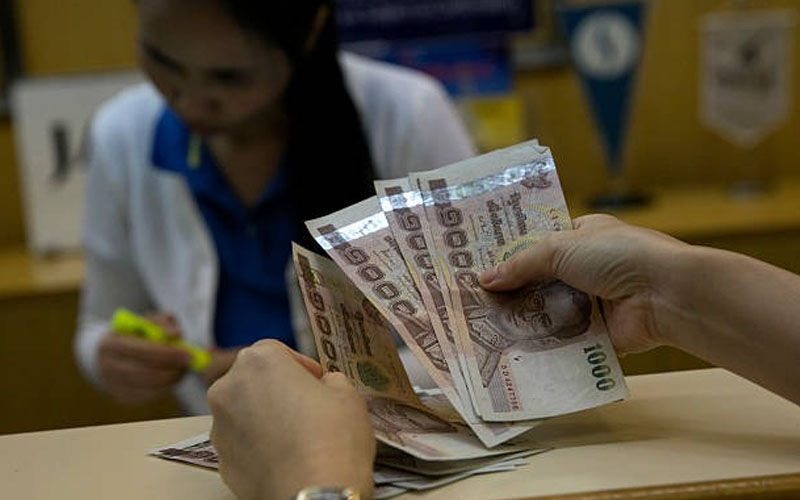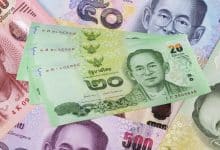Thailand’s baht leads Asian currency downturn amid China’s economic worry

Asian currencies experienced a downturn yesterday, led by Thailand‘s baht, as concerns heighten surrounding the recovery status of the global economy’s second-largest player, China.
The baht plunged by a substantial 0.8%, marking it as the largest depreciation against the US dollar in half a dozen weeks. Across the waters of offshore markets yesterday afternoon, it was changing hands at approximately 35.30 to the dollar.
Growing anxieties stem from the July data on China’s industrial output and retail sales, which display a decelerating rate and lower-than-expected figures respectively. These trends bolster the already present batch of unsatisfying economic statistics. The idea that policymakers may indeed need to increase their support for the economy is gaining credence.
Interestingly, policymakers in Beijing also announced their discontinuation of the release of statistics about youth unemployment, a figure which marched to a record high of 21.3% in June.
Mirroring the ominous cloud hanging over the data release, the central bank of China, in a surprising move, cut significant policy interest rates for the second time in only three months just under an hour before. This starkly highlights the evaporating rebound from the post-Covid-19 economy. ING analysts said…
“As we take a broader view of things, today’s policy decisions prove to be somewhat beneficial. They would aid in enhancing the debt-service abilities of local governments and property companies lagging in cash. But this isn’t a turning point of massive proportions, thus, we hesitate to believe that market sentiment will see a profound improvement based solely on this.”
China’s currency, the yuan, also experienced depreciation, falling as much as 0.4% to land at a nine-month lowest. Later, however, this plunge was curtailed after state banks began selling US dollars to purchase yuan in the onshore spot foreign-exchange market, as reported by Reuters.
Mizuho Bank’s chief Asia forex strategist, Ken Cheung, observed the rise of the 10-year US Treasury yields and the rate cut by the People’s Bank of China.
“This development will cause the rates difference between China and the US to broaden and place a further strain on the renminbi (RMB/yuan).”
Continuing on that note, Cheung reasoned that the snail-paced recovery of the Chinese economy would remain a negative influence on regional currencies.
Indonesia’s rupiah witnessed a 0.2% fall and teetered close to a five-month low. A Reuters survey discovered that both exports and imports in Indonesia are likely to sustain a decline every year as of July amid a worsening global trade scenario. As a consequence, it seems their trade surplus is heading towards reduction.
The Philippine peso and the Malaysian ringgit experienced a 0.3% dip each.
The Philippine central bank is predicted to persist with its unchanged key interest rate of 6.25% for the third successive meeting on Thursday. Moreover, it’s likely to retain this rate for the remaining term of the year to evaluate the impact of previous hikes on inflation, according to findings in a Reuters poll.
Latest Thailand News
Follow The Thaiger on Google News:


























